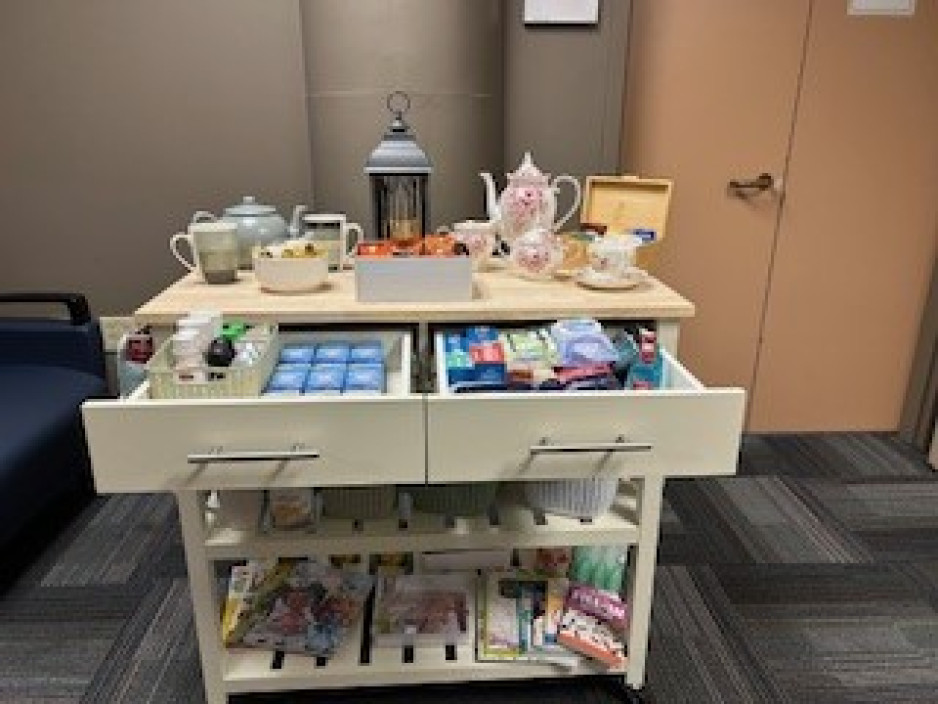The little things in life
Ron and Theresa Mikula have called London home for decades—and for just as long, they’ve been quietly giving back to the hospitals that care for this community.
Their connection to St. Joseph’s Health Care London is personal, deep-rooted and ongoing. Theresa served as a member of St. Joseph’s Health Care Foundation Board of Directors for 12 years and later as Chair. She was also a board member at St. Joseph’s Health Care London—and she continues to lend her voice and experience on the hospital’s People and Mission committee. Ron spent over 20 years on the Board of Directors of London Health Sciences Foundation, holding various roles from Chair to Treasurer.
It’s no surprise their paths in health care leadership eventually led to an even more personal way to give back.
In December 2018, Ron’s father was admitted to St. Joseph’s Palliative Care Unit at Parkwood Institute. For the next few months, as the family spent time with him, they began noticing the small things that made a big difference in the comfort and care of patients receiving palliative care.
Those observations sparked conversations with the care team, and an idea started to take shape. After Ron’s father passed in March 2019, the couple decided to use a portion of his estate to start what is now the Mikula Fund—a special fund designed to support the little extras that bring comfort and dignity to patients in the Palliative Care Program.
Small items, big impact
The impact was immediate. From quilting materials for a comfort blanket to Christmas decorations to make the unit more festive, the Mikulas were inspired by how creative and thoughtful the staff were in using the fund.
“The staff become like family,” Theresa shares. “We wanted to help them create a space that felt more like home. Those small touches can mean everything to a patient and their loved ones.”
As the COVID-19 pandemic shifted how families experienced end-of-life care, another need became clear: families were spending longer hours—sometimes days—at the bedside of their loved one, often without the ability or desire to leave for meals or basic necessities. The Mikulas and the care team dreamed up the idea of a comfort cart: a mobile collection of carefully selected items designed to bring peace and comfort to patients in the Palliative Care Unit.
“The Mikulas are wonderful, supportive people,” says Angela-Marie Schaefer, Clinical Manager, Complex Care. “We appreciate all the support they offer to our program. It not only improves the lives of our visitors, but also our patients. Time is something you can’t get back—and those precious moments are worth everything.”
From cozy socks, meals on the go and hygiene products to tissues, colouring books and word games, the cart is stocked with little things that make people feel more like themselves. It’s driven entirely by the needs that staff identify from the families who have found comfort and dignity in the cart.
Enhancing care for patients and loved ones
And positive feedback keeps coming.
“We always ask families if they’d like to fill out a feedback card,” says Schaefer. “Their ideas help shape what goes on the cart. One family even donated items for children. Another family asked for donations to the comfort cart in lieu of flowers.”
The impact has rippled across the unit. Volunteers, many of them university students, now use the cart as a way to connect with families—an easy icebreaker that opens up meaningful conversations.
Staff say it has made a difference for them too. “Sometimes just knowing you can offer a warm meal or a soft pair of socks makes all the difference,” Schaefer shares. “It’s a way to care for the whole family and to maintain their dignity. Plus, it helps us feel like we’re doing even more.”
For Ron and Theresa, that’s exactly the point.
“We trust the team,” says Ron. “They come to us with ideas, and with the money in the fund, we make it happen. They know what’s needed.”
A lasting contribution
The Mikulas continue to donate regularly to St. Joseph’s initiatives, including the breast care and hand and upper limb care programs. But for them, it’s not about recognition or big gestures—it’s about helping where it matters most.
“We’ve seen firsthand what a difference those small comforts make,” says Theresa. “And we’ve seen how extraordinary the staff are. They go above and beyond, often using their own time and money to make patients feel comfortable. They’re angels, truly.”

